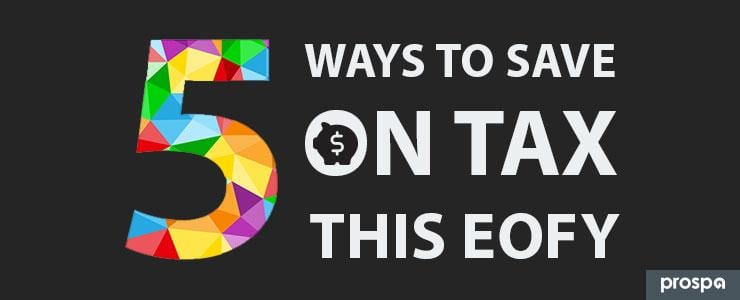Use our end of financial year (EOFY) checklist to help keep more cash in your pocket.
30 June is fast approaching, but for tradies and other small business owners there is still time to save tax.
1. $20,000 asset instant tax write-off
Introduced in last year’s budget, and running until June 30, 2017, small businesses with an annual turnover of up to $2 million, who are making a profit, can immediately claim deductions on income-producing assets purchased up to the value of $20,000.
The deduction can be used for each asset that costs less than $20,000, such as a car or computer, whether new or second-hand. If your cash flow can’t currently support an asset purchase, consider a business loan from Prospa to fund the purchase.
2. Maximise deductions
There is a long list of potential tax deductions you can and should be claiming, including:
- Bank charges
- Calculators and electronic organisers
- Clothes, uniforms and footwear (so long as it is compulsory, protective or occupation specific)
- Computers, internet and phone costs, and software
- Conferences, training courses, seminars, and other self-educational costs
- First aid courses
- Glasses and goggles (protective)
- Home office expenses
- Insurance
- Interest on work-related borrowings
- Laundry and dry-cleaning of deductible clothes
- Overtime meals
- Professional association and union fees
- Subscriptions to industry publications
- Superannuation contributions if self-employed
- Tax agent fees
- Tools, equipment and their depreciation expenses
- Travel expenses.
Note there are various stipulations to many of these deductions, so consult with your tax agent or accountant before claiming them.
3. Recoup bad debts
If you have a debt owed that has been outstanding for more than 12 months, and you have made reasonable attempts to recover it, you have a bad debt. Fortunately, you can write it off and claim it as a deduction, so long as you do so before June 30.
If you calculate your Goods and Services Tax (GST) on an accruals basis, meaning you pay GST when invoices are delivered not when cash is received, then you have already paid GST on that bad debt, which is also recoverable.
4. Cut Capital Gains Tax (CGT)
If your business has sold an asset for a higher amount than it was purchased for (a capital gain), you are liable to pay CGT on it. But before EOFY you can reduce this amount by selling an asset for less than you originally paid for it (a capital loss), provided that you owned the asset for 12 months prior to the sale.
You are then only liable to pay tax on the capital gain less the capital loss amount, reducing your tax liability.
5. Reduce tax on trading stock
At the end of each financial year, you need to conduct a stocktake, unless you are a small business and estimate your trading stock has not changed in value by more than $5,000 since the last financial year.
If the value of your stock is higher than last year, it is assessable income you are taxed on, while if it has decreased it is an allowable deduction. It pays to move as much stock before that valuation as possible, so consider having a sale on older, slower moving items.
It is equally important to use the valuation method that will best help you save on tax. There are three methods—cost, market selling value and replacement value. A tax accountant can help you determine the best strategy for your business.
Saving on tax is still possible before June 30, but you had better act soon before these tax deductions disappear.
If you need help with your business finances, don’t forget to talk to Prospa about securing a small business loan for the new financial year.








